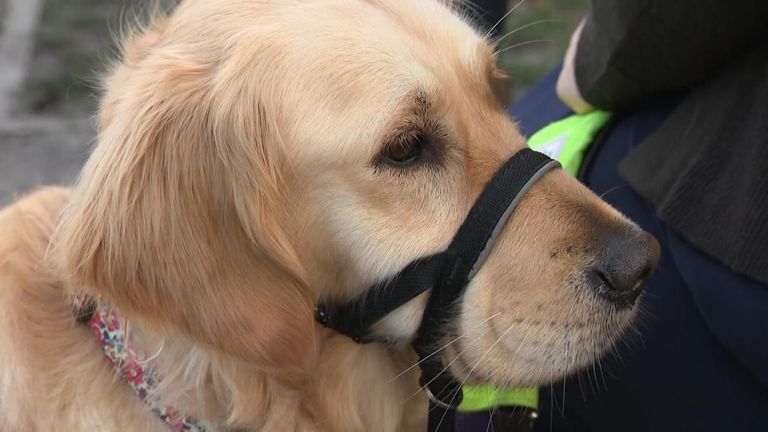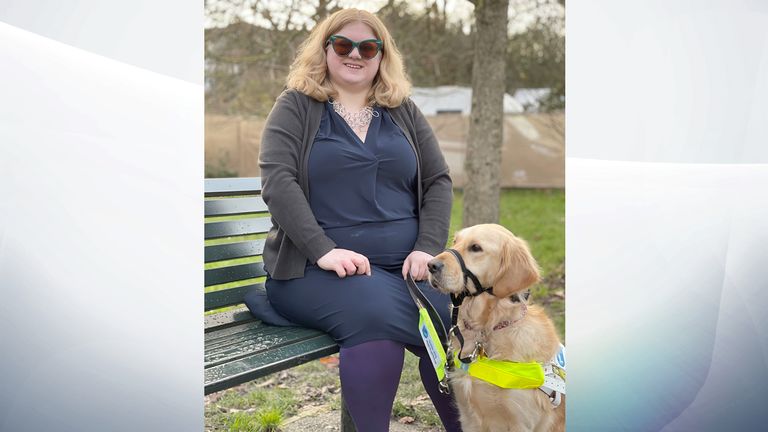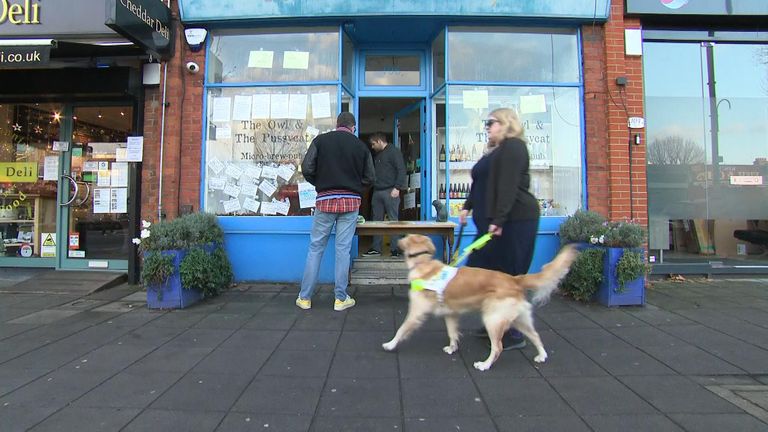Amy Kavanagh's guide dog Ava wears a harness that reads "Please don't distract me".
But the 37-year-old visually impaired activist says members of the public continue to ignore the sign, even throughout the pandemic.
Guide dogs are responsible for a space around them two times as wide as themselves and three times as high; they are not trained on what two-metre social distancing means.
Although they can lead their owners around obstacles, they cannot help them maintain COVID-secure spaces.
"Ava's a working guide dog and she's got to be focused on her job, which is looking after me. I don't want to catch the virus," Ms Kavanagh told Sky News.
"People need to give us a bit of space. If you can just step out of the way, or if you're queuing outside a shop, Ava might not know that she's got to give you a wide berth, so if you just tuck in a bit that would be amazing."
This is a common problem for blind and visually impaired people who rely on guide dogs to help keep them safe. Ms Kavanagh says an increase in people getting "lockdown puppies" has made matters worse.
"These puppies may have been staying at home a lot and they're not very socialised with people or other dogs. We had a very difficult incident where I went to cross a road and a person repeatedly asked their dog to distract Ava. It's just really dangerous," she said.
As Ms Kavanagh is speaking to Sky News, a passer-by stops to ask whether she can stroke Ava. "She's in the harness so no, not at the moment," Amy explains, gesturing to the sign on Ava's harness.
Shortly after, another dog approaches Ava and Ms Kavanagh has to plead with the owners to call their dog away.
"This happens quite a lot," she explains. "Even in a situation like this, where we're sat or we're stood waiting, Ava is still working. In the supermarket, if I'm stood by a shelf trying to work out what to buy, people will come and start trying to interact with her and that can even end up pulling me away."
The charity Guide Dogs warns that strangers interacting with guide dogs can set training into reverse.
"Not only do we sometimes have to re-train the dogs but sometimes that working partnership can break down because the dog could be putting the guide dog owner in danger," the charity said.
It can take 28 weeks to train a guide dog in the UK and some waiting lists have as many as 700 names on them.
Ms Kavanagh waited three years to get Ava and says her arrival has been life-changing, especially during the pandemic.
She said: "One of the reasons Ava is so great is because she's given me that confidence to go out again. When I just had my white cane I was too worried to go out by myself. I kept bumping into people, whereas she steers me around people.
"She has lots of time to play with dogs in the park and have fun but when she's working, it's really unfair to distract her. It's also really unsafe, especially when I'm crossing the road because she has to help look out for cars."






